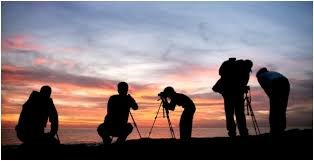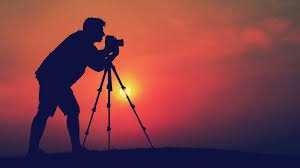
Types of photographer
Most professional photographers specialise in one area, such as:
advertising
corporate
editorial
fashion
fine art
social photography - also known as general practice, which includes weddings, commercial and portraiture photography.

Qualifications
It is possible to get into this profession without a degree, but in many instances having a degree or equivalent professional qualification is an advantage.
You could study for a degree in the following relevant subjects:
art and design
digital imaging
fine art
graphics
media studies
photography.
The content of photography courses varies considerably. Some have a strong emphasis on fine art and the study of photography as an artistic endeavour, whereas others have a more commercial focus and cover managing a business, professional ethics and marketing
Skills
You will need to show:
excellent technical skills, using digital and non-digital cameras and industry-standard software such as Photoshop
creativity and an eye for a picture
personality, perseverance, patience and dedication
the ability to work under pressure, juggle workload and meet deadlines
the ability to work both independently and in teams, building rapport with clients, colleagues and other businesses.
Responsibilities
Exact tasks vary according to the specialism you choose, but common activities for most photographers include:
working with clients to discuss the images they require and how they want to use them
seeking out appropriate photographic subjects and opportunities
carrying out research and preparation for a shoot
working in different locations and circumstances to get the right image
using an extensive range of technical equipment, including cameras, lenses, lighting and specialist software
communicating with photographic subjects, putting them at ease, encouraging them and directing them
arranging still life objects, products, scenes, props and backgrounds
liaising with other professionals, including graphic designers, writers, gallery managers, picture researchers, commissioning editors and art directors
managing the processing and use of images, discussing technical problems, checking for quality and dealing with clients' concerns
preparing proofs for approval.

Hi! I am a robot. I just upvoted you! I found similar content that readers might be interested in:
https://www.prospects.ac.uk/job-profiles/photographer